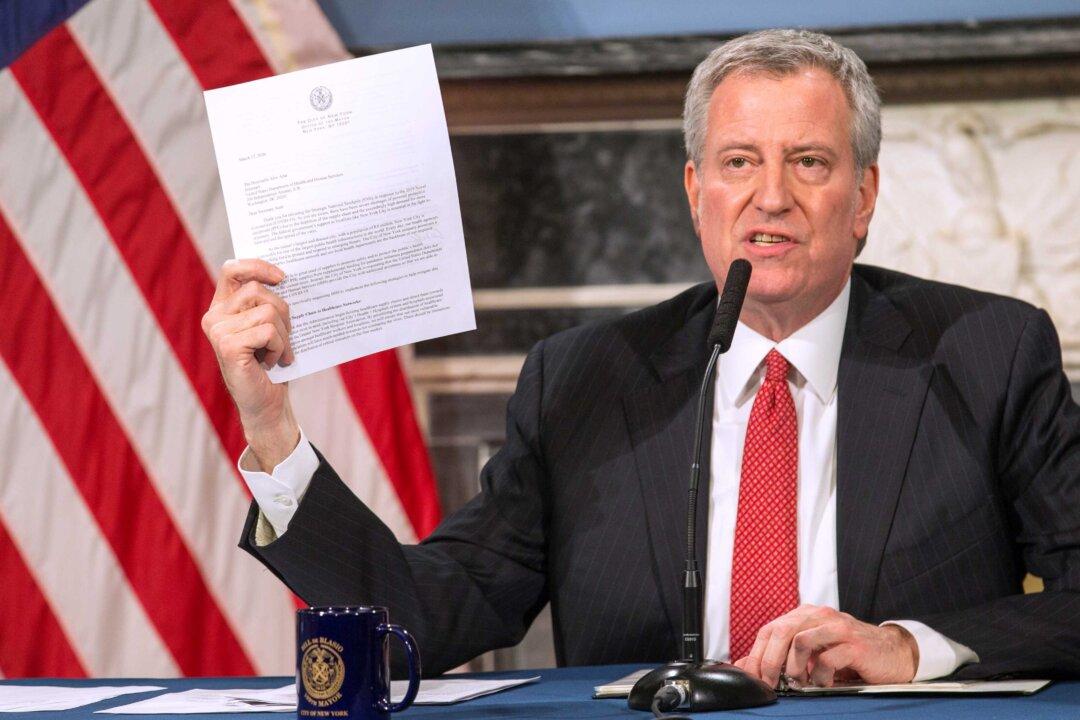New York City Mayor Bill de Blasio said Monday that swimmers at city beaches flouting COVID-19 restrictions would be hauled out of the water by authorities enforcing compliance.
Speaking at a briefing on COVID-19, the disease caused by the CCP (Chinese Communist Party) virus, de Blasio said that “anyone [who] tries to get in the water, they’ll be taken right out of the water.”





